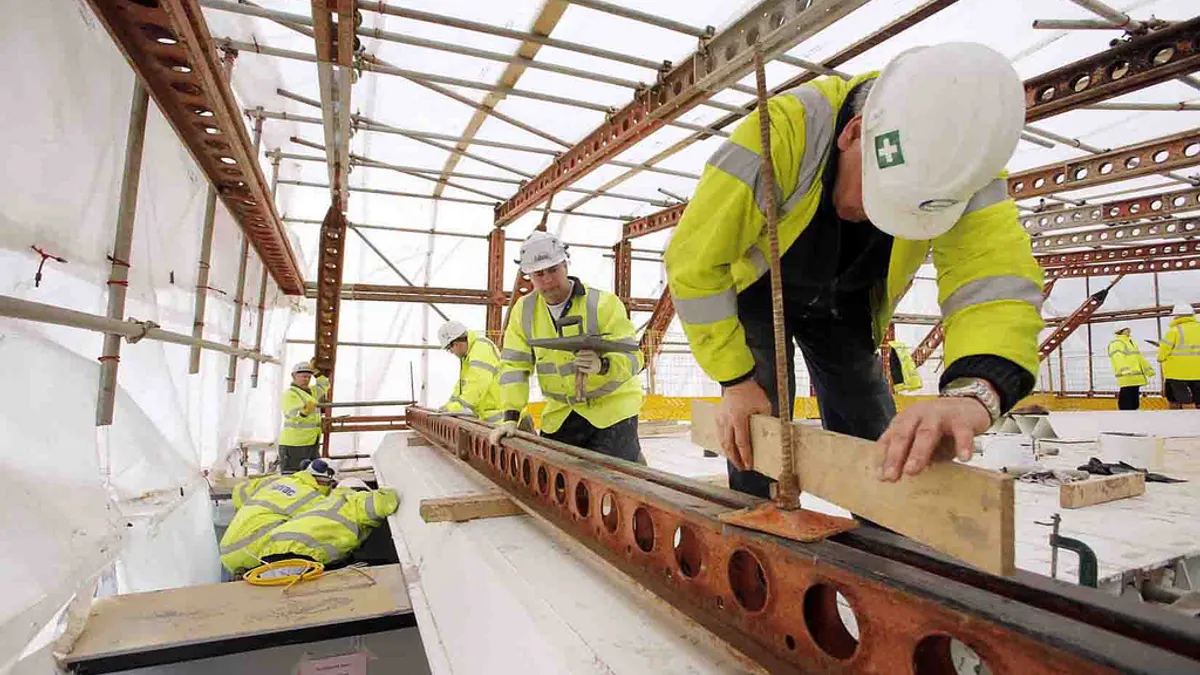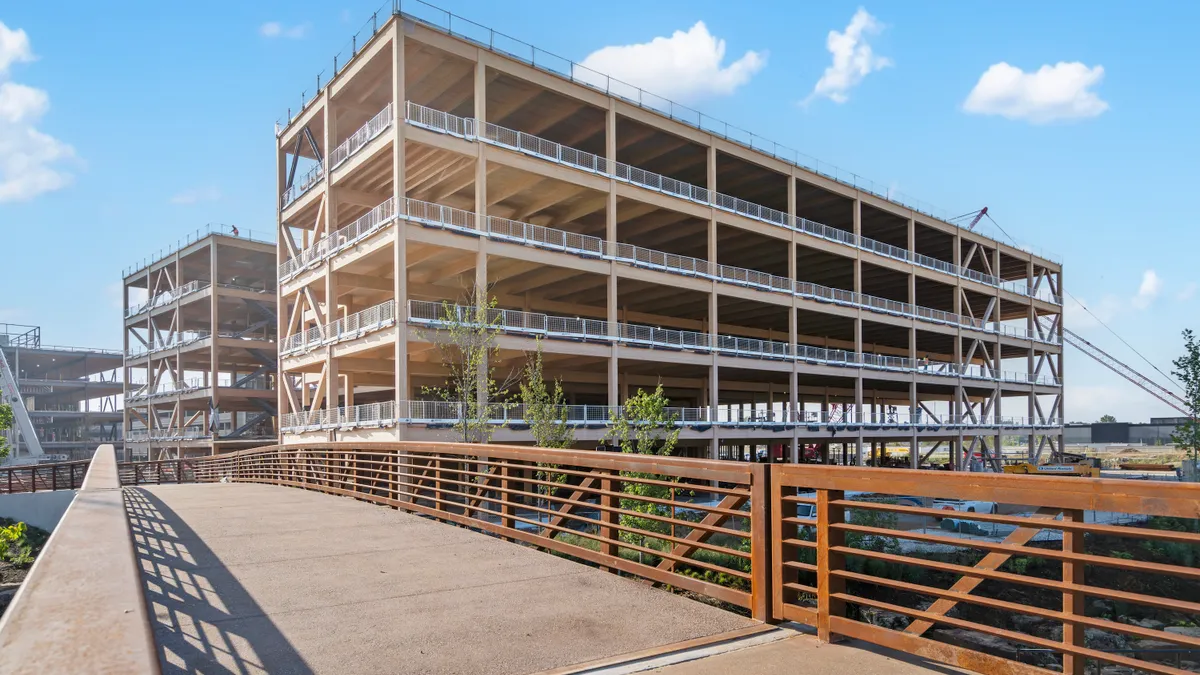This article is part of a series of conversations that Construction Dive reporters and editors are having with industry leaders about the effect that the COVID-19 pandemic is having on their firms and their markets. To add your voice to the discussion, email us here.
Chuck Goodrich is president/CEO of Indianapolis-based Gaylor Electric, which has 11 offices across the country and works in 27 states.
As a representative to the Indiana state legislature, Goodrich is in a unique position to observe the effects that the coronavirus pandemic is having not only on his business but on Indiana’s government and residents as well. Here, Construction Dive talks with Goodrich about construction’s new normal and what the future looks like for subcontractors.
How has the coronavirus affected your firm?
We’ve been fortunate that our work has been considered essential in all jurisdictions we work in. We haven’t had a site shut down for even a day, although some of our service accounts have wavered as factories shut down and didn’t need us to keep their operations running.
We had to lay off about 200 people out of 1,500, but about 30% of them are back now, and the rest will be back by the end of the month.
Now that things are getting back to normal, we’ve started to see a tightening of work. We have been maintaining a backlog of about $230 million, and as a $300 million company that makes sense. In February and March, we picked up $30 million each month in new work, and that number went down to $15.6 million in April. In total, we are down about 10% in revenue at this point.
What measures have you put in place in order to get back to work?
When the outbreak started in this country, the construction industry went into chaos. Sites were shut down and people didn’t want to come to work. No one knew what to do.
We immediately realized that we needed to communicate with our employees to let them know that keeping them healthy and working was our No. 1 goal. To that end, we have instituted meetings and communications via text and email twice a week to let employees know what’s going on and to take questions and ideas.
In addition, every Wednesday I send out a communication to our 4,000 stakeholders including customers, banks and bonding companies. We let them know how we’re keeping our people healthy and safe and staying open for business. It helps create establish a sense of normalcy that a lot of people don’t have during this time.
So, communication has been the key to keeping our people and our stakeholders confident in the future of our company.
How will you keep workers safe?
We are using technology quite a bit to be productive and to keep our folks safe. We’re using Predictive Solutions’ Safety Net system on 100% of our jobs for safety, quality and productivity audits. This helps us with things like whether we have the appropriate amount of PPE on each job.
In addition, Tableau dashboards help everyone see instantaneously what is going on with each project.
We also use Zoom quite a bit to keep our teams informed, even for all-staff meetings with 270 people. Employees seem to really like remote work, and technology has really been key to that. We also offer online classes just about every day of the week, with each one averaging about 200 employees per class.
We talk a lot about mental health, too, and recognize that our people are dealing with life and big issues right now. We constantly remind employees to take advantage of options from human resources and our employee assistance program. It’s important to try to keep folks mentally healthy during this time.
What are your biggest concerns as construction begins to reboot?
I’m concerned that there are going to be some more coronavirus cases after we get started working and we’ll have to shut down businesses again. I think a lot of whether this will happen or not is dependent on the leadership of this country, but it’s also every person’s individual responsibility to follow social distancing rules.
I’m also concerned about whether the industry can keep up with the various requirements and medical advice that seem to keep changing every day. I’ve told our governor that you can only change the rules on us once a week. As business owners, we can’t respond to daily changes, which is what we were facing at first.
How does the future look for subcontractors like you?
It looks to me like the availability of work has slowed, and indications from economists and ABC are that we’re going to see pretty a tough scenario in the third and fourth quarters and into the first quarter of 2021, but after that we should see a pretty big lift in the economy.
Where we once thought everything was pointing to a record-setting economy this year, the way things are turning out has got people worried. I do think we will have a stumble because of the virus — there’s no way the economy doesn’t see the effects of this as a three- or four-month slowdown.
But I’m cautiously optimistic, and here’s why I say that: Have you ever gone to Cape Canaveral to watch a rocket take off? If so, you’d know the way the rocket shakes as it’s getting ready to blast off. That’s how construction is right now, just waiting to take off again. We want to be prepared for when that time comes.




















